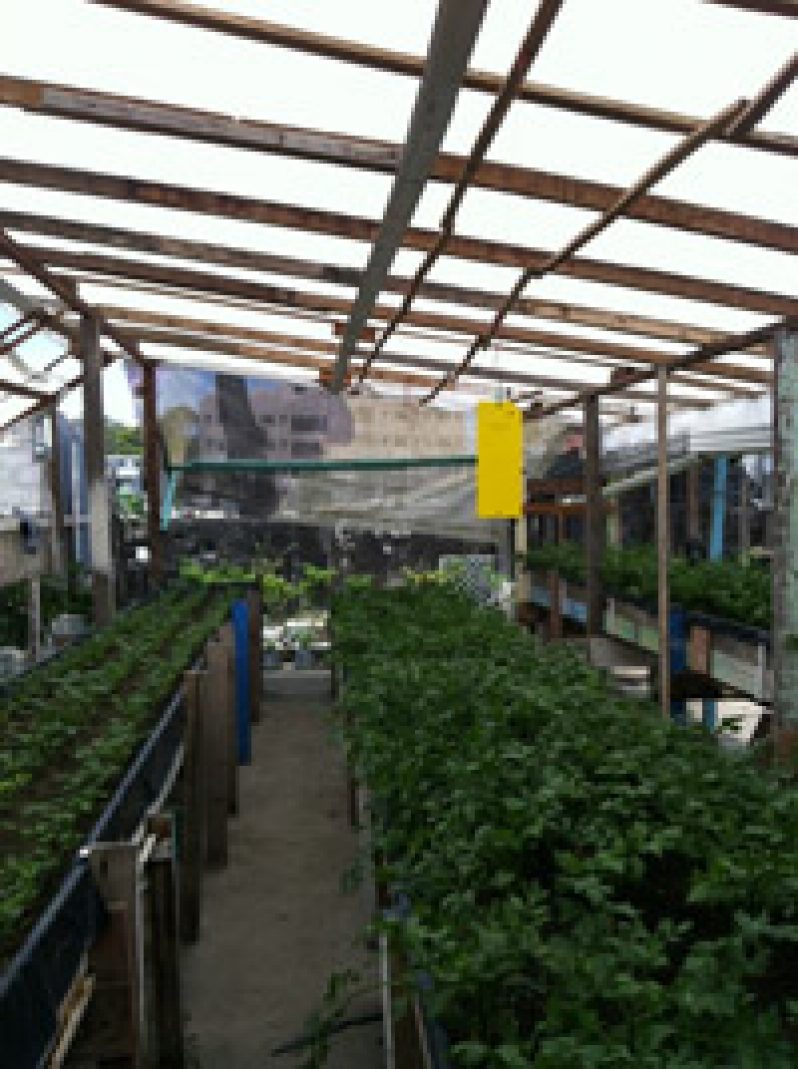THE following article is the second of two on Integrated Pest Management (IPM) in gardening and cash-crop production.
The two articles in this series are based on a presentation done by Ms. Elizabeth R.B. Church, a pest control adviser from the USA, who holds an MSc in Agriculture with emphasis on Plant Protection Science, and who visited Guyana and interacted with farmers recently under the Partnership of the Americas (PoA) Farmer-to-Farmer  programme.
programme.
Biological control
Biological control has to do with all the natural enemies of the insect pests:- all of the parasitoids, all of the predators, all of the small wasps and lady bugs, all of the insects that are on your side.
The gardener needs to promote these natural enemies because the beneficial wasps and the predators only come when the population of these natural enemies is pretty high.
There are specific wasps that go for aphids, and there are specific wasps that go for white flies; and it is nice to have them around, because they are going to really target your pests. They can smell the insect pests, but only when the pest population is pretty high.
The gardener has to find other ways to attract them and get them to stay around.
Some flowers of plants that attract predatory flies and other natural enemies of the insect pests and are available locally are dill cilantro and carrot. Sunflowers are a magnet for aphids, and can be used as a trap for this pest.
You can plant sunflowers to trap the aphids, and then destroy the flowers when the pest population gets too high. Keep in mind, if you have hibiscus in your area, that hibiscus is a huge attraction for white flies. White flies love hibiscus, so
If you have hibiscus next to your shade house, remove it from there.
Another way to manage aphids is to manage ants. Ants farm aphids very much like how humans farm cows. Ants will gather aphids, protect them, move them to different locations and help to keep them out of the garden.
So keep an eye on the ants; they will lead you to where aphids are.
Use of natural pesticides
Some natural pesticides are pepper, garlic and neem extracts. Neem is important because it is an insect growth regulator (IGR); it stops the insect from being able to grow to the next stage of its life cycle.
Soapy water can also help because soapy water will wash a waxy coating off the insect pests, and when their skins become dry, they become more vulnerable, and often die.
These treatments must be administered late in the afternoons not in the heat of the day, nor in the morning.
Cultural control
Cultural control is doing in your garden or shade house things that prevent the pests from getting comfortable there.
Those things include crop rotation and cleanliness of the shade house.
If you do not have a clean shade house, or if you do not practice crop rotation, you are giving those pests a wonderful place to live and reproduce, and create problems for the crop.
Remove and destroy the leaves under attack, because if you take off those leaves and just drop them on the spot, the pests will hatch on the ground and move right up onto the plant to continue their destruction.
Chemical control
The idea is to use less chemical control, because when you use chemicals you kill not only pests, but the beneficial wasps and the predators as well.
The reason you restrict the use of chemicals is not only about safeguarding your health and the environment, but about encouraging resistance to the chemicals, which, having been used numerous times, the pest develops resistance to the chemicals and no longer die from them anymore.
The thing to do is to rotate the chemicals. Do not use the same chemical over and over again.
Use chemicals only a few times on the same crop in the same area, not more than three times a season.
When you use chemicals too often, you are creating a bug that is no longer susceptible to that chemical, and that means you are wasting hard earned cash.



.jpg)








